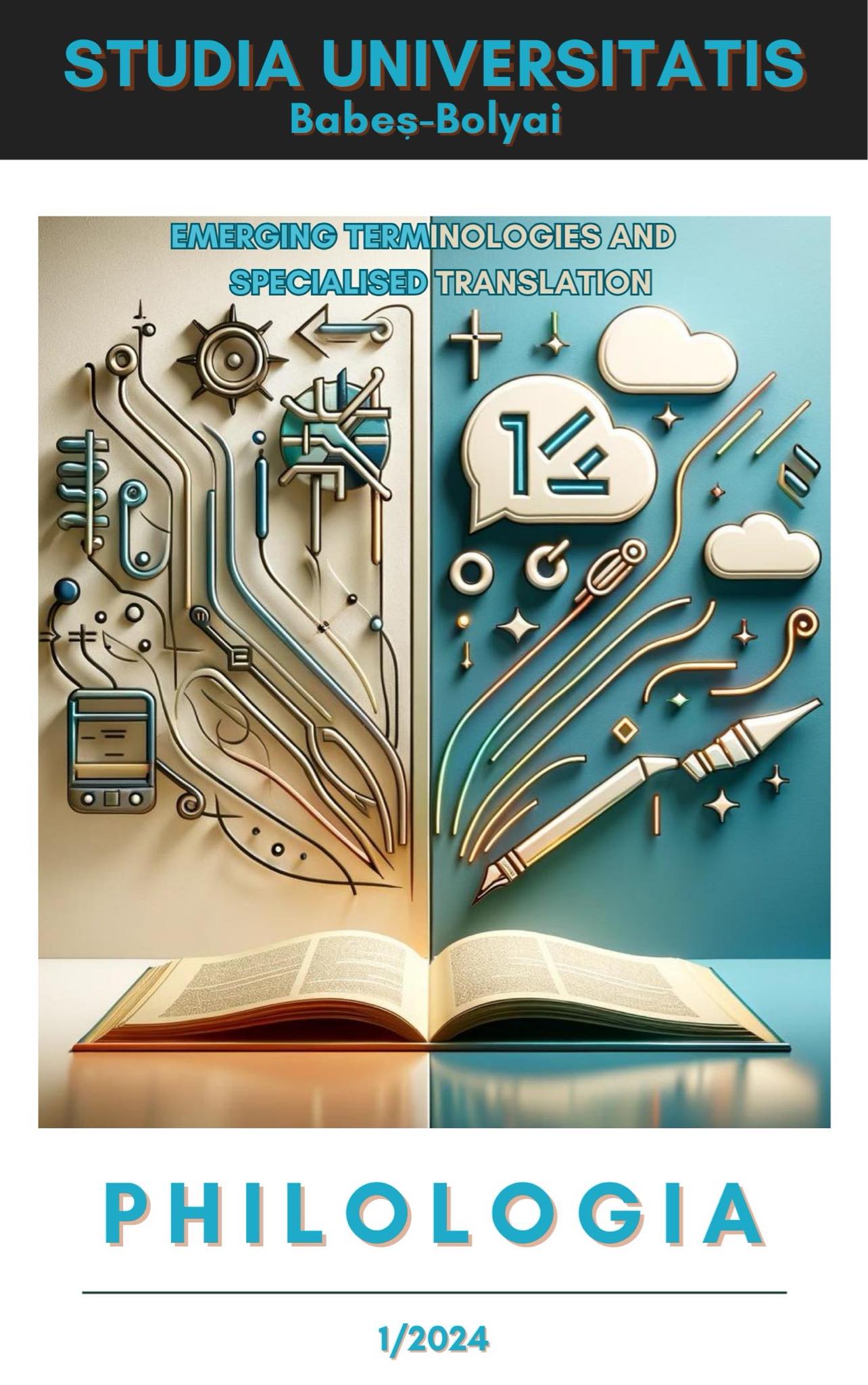EXPLORING FRAMEWORK BIAS: THE CASE OF MINIMALISM VS PARALLEL ARCHITECTURE IN STUDIES ON LANGUAGE EVOLUTION
DOI:
https://doi.org/10.24193/subbphilo.2024.1.13Keywords:
framework bias, Minimalism, Parallel Architecture, language evolutionAbstract
Exploring Framework Bias: The Case of Minimalism Vs Parallel Architecture in Studies on Language Evolution. The present paper explores the issue of framework bias through the analysis of two lines of study concerning language evolution, one framed by the Minimalist program and one by the proposal of Parallel Architecture of language. Framework bias, as proposed in this study, raises the question of the degree to which the theoretical framework chosen for a certain line of research will influence the design of an experiment, the selection of data, and therefore the analysis and final results. The studies presented in this paper tackle the same topic (language evolution) using the same parameters for research (gradual versus saltational evolution; continuation versus exaptation; and unique versus shared property) but reach significantly different conclusions because of their respective theoretical framework.
O explorare a influenței cadrului teoretic asupra rezultatelor cercetării: Programul Minimalist vs Arhitectura paralelă a limbajului în studii despre evoluția limbajului. Lucrarea de față explorează problema bias-ului creat de cadrul teoretic prin analiza a două linii de cercetare asupra evoluției limbajului, una centrată pe programul minimalist, iar cealaltă pe teoria arhitecturii paralele a limbajului. Bias-ul de cadru teoretic, astfel definit în lucrarea de față, ridică problema măsurii în care cadrul teoretic ales pentru o cercetare influențează design-ul unui experiment, alegerea corpusului de analiză, și implicit analiza în sine și rezultatele aferente. Studiile prezentate în această lucrare abordează aceeași temă (evoluția limbajului) folosind aceiași parametri de cercetare (evoluție graduală vs saltațională; continuare vs exaptare; și proprietate unică sau comună) dar ajung la concluzii semnificativ diferite din cauza cadrului teoretic ales de fiecare studiu în parte.
Cuvinte-cheie. bias de cadru teoretic, programul minimalist, arhitectura paralelă, evoluția limbajului
Article history: Received 19 January 2024; Revised 08 February 2024; Accepted 08 March 2024; Available online 27 March 2024; Available print 27 March 2024.
References
Boeckx, Cedric. 2013. “Biolinguistics: forays into human cognitive biology.” Journal of Anthropological Sciences 91: 1-28.
Boeckx, Cedric. 2015. “Linguistic Minimalism.” In The Oxford Handbook of Linguistic Analysis. Second edition, by Bernd Heine and Heiko Narrog, 429-447. Oxford: OUP.
Boeckx, Cedric. 2021. Reflections on language evolution: From minimalism to pluralism. Berlin: Language Science Press.
Chomsky, Noam. 2001. “Beyond Explanatory Adequacy.” MIT Occasional Papers in Linguistics. Cambridge, MA: MIT Dept of Linguistics.
Chomsky, Noam. 2007. “Approaching UG from below.” In Interfaces + Recursion = Language? Chomsky’s Minimalism and the View from Syntax-Semantics, by Uli Sauerland and Hans-Martin Gärtner, 1-30. Berlin. New York: Mouton de Gruyter.
Fitch, Tecumseh, Marc Hauser, and Noam Chomsky. 2005. “The evolution of the language faculty: Clarifications and implications.” Cognition (97): 179-210.
Fitch, Tecumseh. 2009. “Prolegomena to a Future Science of Biolinguistics.” Biolinguistics
(4): 283–320.
Fitch, Tecumseh. 2018. “What animals can teach us about human language: the phonological continuity hypothesis.” Behavioral Sciences 21: 68-75.
Hauser, Marc, Noam Chomsky, and W. T. Fitch. 2002. “The Faculty of Language: What Is It, Who Has It, and How Did It Evolve?” Science 1569-1579.
Jackendoff, Ray, and Steven Pinker. 2005. “The nature of the language faculty and its implications for evolution of language (Reply to Fitch, Hauser, and Chomsky).” Cognition (97): 211-225.
Jackendoff, Ray. 2010. “Your theory of language evolution depends on your theory of language.” In The Evolution of Human Language: Biolinguistic Perspectives, by Richard Larson, Viviane Déprez and Hiroko Yamakido, 63-72. Cambridge: CUP.
Jackendoff, Ray. 2015. “The Parallel Architecture and its Place in Cognitive Science.” In The Oxford Handbook of Linguistic Analysis. Second edition, by Bernd Heine and Heiko Narrog, 593-614. Oxford: OUP.
Matsuzawa, Tetsuro. 2007. “Comparative cognitive development.” In Develop-mental Science (10): 97-103.
Mobbs, Iain Jerome. 2015. “Minimalism and the Design of the Language Faculty. PhD Thesis.” Downing College. University of Cambridge.
Pinker, Steven, and Ray Jackendoff. 2005. “The faculty of language: what’s special about it?” Cognition (95): 201-236.
Wacewicz, Sławomir, Przemysław Żywiczyński, Stefan Hartmann, Michael Pleyer, and Antonio Benítez-Burraco. 2020. “Language in Language Evolution Research: In Defense of a Pluralistic View.” Biolinguistics (14): 59-101.
Downloads
Published
How to Cite
Issue
Section
License
Copyright (c) 2024 Studia Universitatis Babeș-Bolyai Philologia

This work is licensed under a Creative Commons Attribution-NonCommercial-NoDerivatives 4.0 International License.





 ©Studia Universitatis Babeş-Bolyai Philologia. Published by Babeș-Bolyai University.
©Studia Universitatis Babeş-Bolyai Philologia. Published by Babeș-Bolyai University.